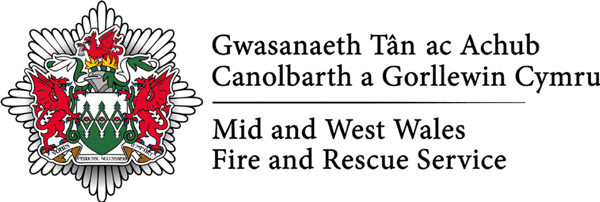Authority for the Fire and Rescue Service to undertake an investigation into a fire is provided by section 45 of the Fire and Rescue Services Act 2004 which provides for a ‘power’ as opposed to a ‘duty’.
The investigation of fire is essential in determining cause and origin, and also in identifying the behaviour of fire and the people affected which in turn enables characteristics and trends to be identified with a view to reducing future fire losses.
During the last five years the expertise of our Fire Scene Investigation Officers (FSIOs) has increased in line with greater demands being made on them.
Authority for the Fire and Rescue Service to undertake an investigation into a fire is provided by section 45 of the Fire and Rescue Services Act 2004 which provides for a ‘power’ as opposed to a ‘duty’.
Definitions:
'Power’: The ability to exercise control or authority
‘Duty’: An obligation of service, task or function
The investigation of fire is essential in determining cause and origin, and also in identifying the behaviour of fire and the people affected which in turn enables characteristics and trends to be identified with a view to reducing future fire losses.
During the last five years the expertise of our Fire Scene Investigation Officers (FSIOs) has increased in line with greater demands being made on them. Changes in legislative requirements have led to the need for greater collaboration between Fire, Police and Forensic Science Services. More requests are being received from Insurance Companies, keen to establish liability on the incidents attended. These changes have also made FSIOs more answerable to legal and public scrutiny than ever before, particularly when dealing with high profile incidents such as those involving a fatality or multiple fatalities.
The responsibilities placed on FSIOs under other legislation such as the Police and Criminal Evidence Act 1984 (PACE) means that evidence obtained to support Police investigations has to be managed in the correct manner since failure to do so could result in those responsible for deliberate fire setting being acquitted on technical grounds.
The Service has invested considerably in the development of individual fire investigation skills enabling its FSIOs to carryout comprehensive investigations which ultimately result in legal cases being brought about, supported and/or informing Coroner inquests.
There are two levels of Fire Scene Investigation Officers (FSIOs) within the Service.
Level-1 fire investigations are undertaken by initial Incident Commanders, in charge of incidents, who have undertaken a basic level of fire investigation training.
Level-2 investigations are undertaken by Station Manager rank and above, who have attended a fire investigation course at the Fire Service College (or other recognised establishments) and received further in-depth training, at an institution such as the University of Edinburgh (and/or similar accredited training provider) plus additional accredited learning programmes.
An FSIO must comply with the Powers of Entry Code of Practice (opens in new window/tab) and be authorised by the Fire and Rescue Authority in writing and this written authorisation must be available to produce on request. An authorised FSIO may, at any reasonable time, enter any building (with the exception of private occupied dwellings) for the purposes of investigating the origin, cause and spread of any fire.
For private occupied dwellings entry by right can only be made by:
- Obtaining the consent of the occupier. If consent is not forthcoming, or the occupier cannot give this consent by virtue of their non-availability for any reason then;
- An FSIO may give to the occupier, or leave at the premises, a Notice giving 24-hours’ notice of entry. If the name or address of the occupier cannot be ascertained after reasonable inquiry, the notice may be given-
- by leaving it in the hands of a person who is or appears to be resident in the dwelling, or
- by affixing it to a conspicuous part of the dwelling.
- If there is an urgent need for the investigation to proceed immediately and waiting 24-hours is not an option, the FSIO must obtain a warrant from a Justice of the Peace authorising the FSIOs to enter the dwelling at any time.
Entering any premises by force by FSIOs is not permitted. Neither is it permissible for FSIOs to enter a domestic dwelling on the ‘coat-tails' of the Police because the Director of Public Prosecutions has decreed that the Police serviced ’general power’ to request the assistance of an individual cannot overrule the specific bar contained in the Fire and Rescue Services Act 2004.
An authorised FSIO who has made lawful entry into any premises for the purposes of fire investigation is permitted to take with him any other person considered necessary to complete the investigation. This power should be used when a person who can materially assist the investigation does not have the legal right of entry. Therefore competent persons (e.g. electricians, gas engineers, fire alarm engineers, etc.) may make legal entry into the premises to assist the FSIO with the investigation of the cause and spread of the fire. Police officers are covered by their own legal powers of entry which they should use, and SOCOs and Forensic Scientists will generally enter premises under Police powers.

